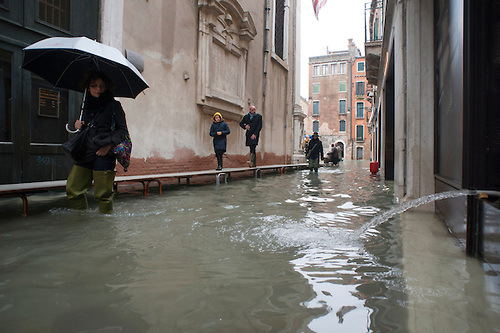-
Tips for becoming a good boxer - November 6, 2020
-
7 expert tips for making your hens night a memorable one - November 6, 2020
-
5 reasons to host your Christmas party on a cruise boat - November 6, 2020
-
What to do when you’re charged with a crime - November 6, 2020
-
Should you get one or multiple dogs? Here’s all you need to know - November 3, 2020
-
A Guide: How to Build Your Very Own Magic Mirror - February 14, 2019
-
Our Top Inspirational Baseball Stars - November 24, 2018
-
Five Tech Tools That Will Help You Turn Your Blog into a Business - November 24, 2018
-
How to Indulge on Vacation without Expanding Your Waist - November 9, 2018
-
5 Strategies for Businesses to Appeal to Today’s Increasingly Mobile-Crazed Customers - November 9, 2018
Increased Risk of Compound Urban Flooding May Sink Cities
The number of so-called compound flooding events – combining heavy precipitation and a high storm surge – have “increased significantly” for much of the coastal U.S., affecting cities from New York and San Francisco to Boston and Galveston, Texas, researchers said in a paper published Monday by the journal Nature Climate Change. While rising sea levels are the main driver for increasing flood risk, storm surges caused by weather patterns that favor high precipitation exacerbates flood potential. According to the co-authors the combination of storm surges and heavy rainfall have increased risks of more flooding and now they are looking into studying their long term affects.
Advertisement
“Flooding can have devastating impacts for these low-lying, densely populated and heavily developed regions and have wide-ranging social, economic and environmental consequences.”
New York’s odds of being flooded by a one-two punch of extreme rain and surging seas have more than doubled in the past 80 years, a change scientists say may be linked to global warming.
Changing storm dynamics are causing a greater risk of flooding than they were 50 years ago, particularly on the Atlantic and Gulf coasts, putting almost 40 percent of the US population in harm’s way, according to a new study from a Florida university.
Armed with data reaching back into the 1950s, and some data from the beginning 20th century for some sites, they determined that the risk for compound flooding was higher for cities along the Atlantic and Gulf coasts than for those on the Pacific coast.
For both the East and West coasts, they found that, currently, weather events blowing water towards the coast are more likely to cause heavy rainfall over the land and lead to flooding than weather events that took place in the 1950s.
“Our results demonstrate the importance of assessing compound flooding and its links to weather and climate, but we need more research at local scales to determine impacts”, concluded Wahl and his colleagues.
Yes, at the end of the day the researchers are unsure of the exact connection of between sea-level rise and heavy rainfall and storm surge; it is just too early in the study to understand it. Still, they agree that there is definitely a connection worth investigating. It’s possible that climate change has strengthened the correlation between storm surge and heavy rainfall, but further analyses will be needed to make that case, the team notes.
Advertisement
You may also like…




























